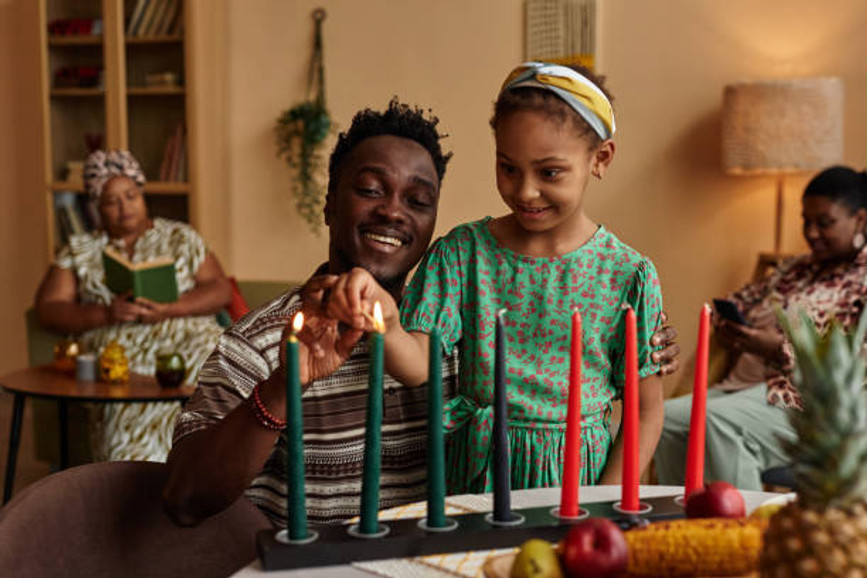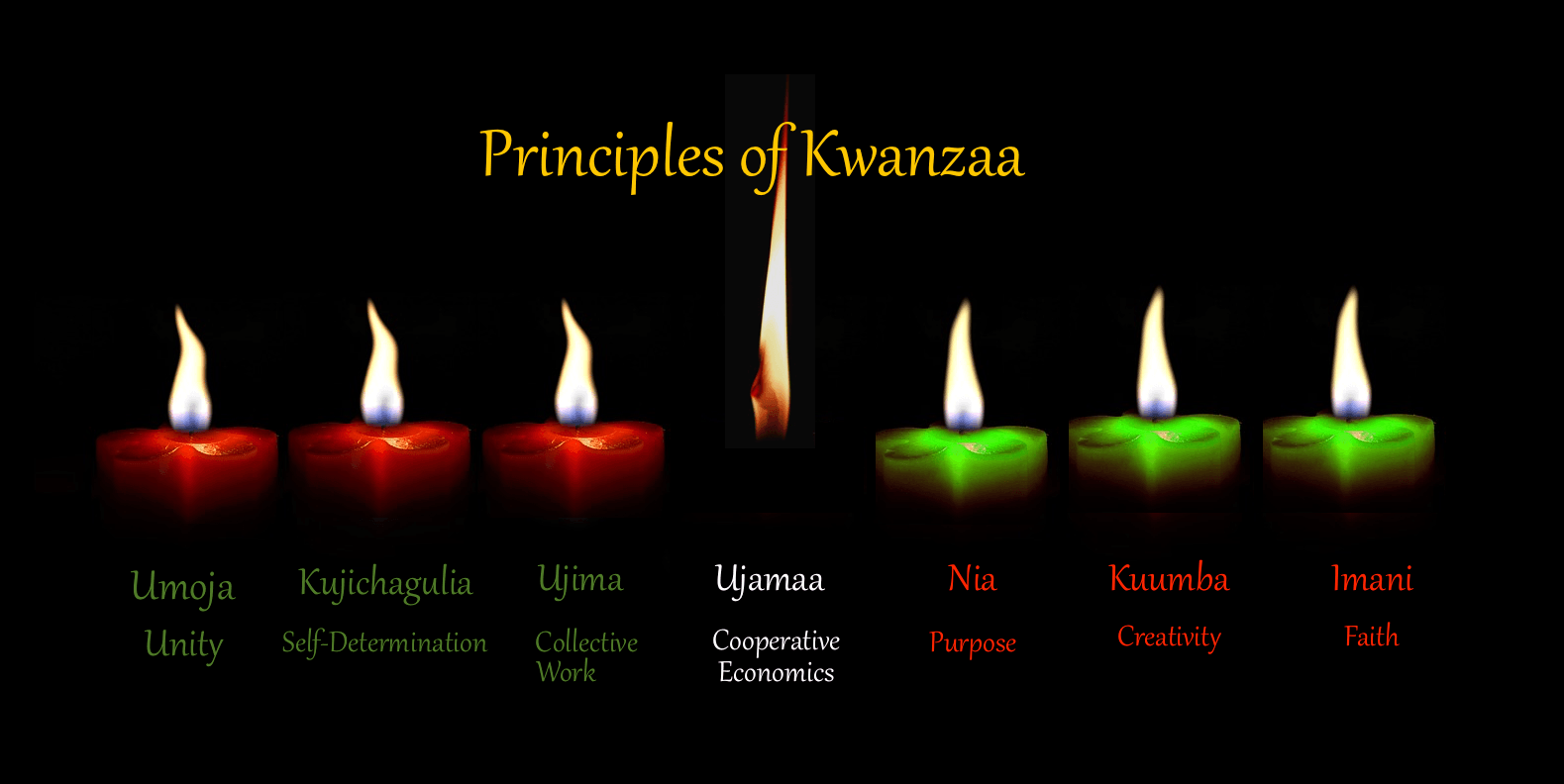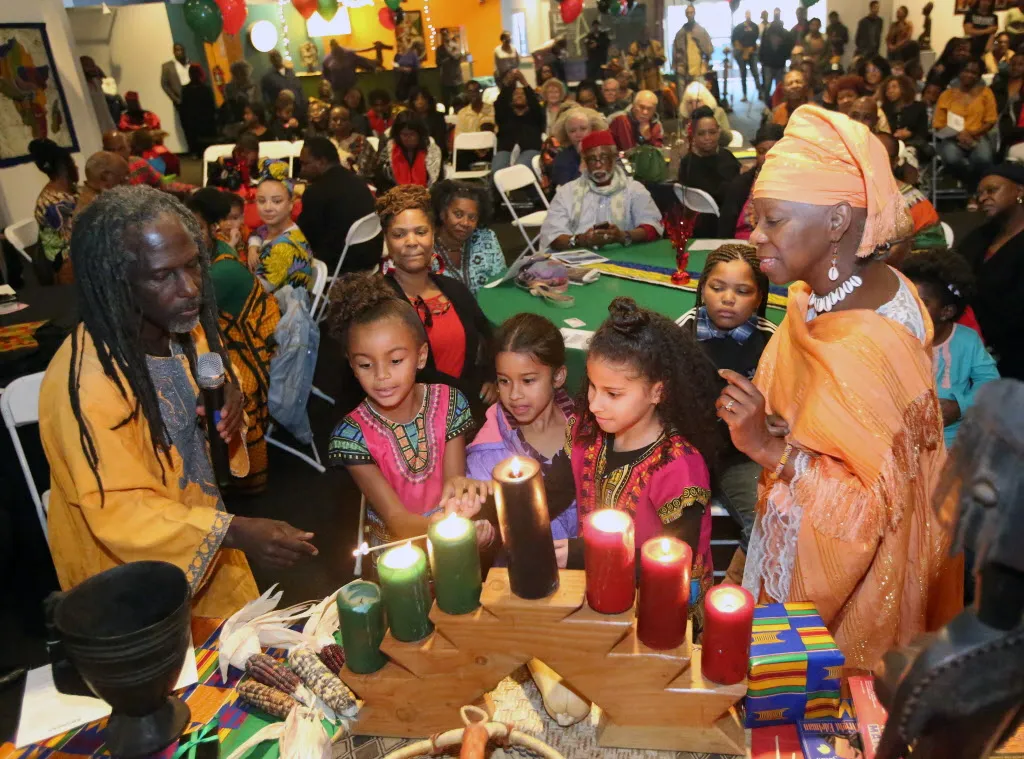
Celebrating Kwanzaa: Embracing Unity, Culture, and Community.
22nd Dec 2023
As the holiday season approaches, many cultures around the world come together to celebrate their unique traditions and customs. One such celebration is Kwanzaa, a cultural holiday that holds a special place in the hearts of African Americans. Created in 1966 by Dr. Maulana Karenga, Kwanzaa is a week-long celebration that focuses on African heritage, unity, and community building. In this blog, we'll delve into the history of Kwanzaa, explore its traditions, discuss current practices, and understand why people continue to celebrate this meaningful holiday.

History of Kwanzaa
Kwanzaa was established in the turbulent times of the 1960s as a response to the African American struggle for civil rights and the need for a sense of identity and community. Dr. Maulana Karenga, a professor of Africana Studies, founded Kwanzaa as a way to reconnect African Americans with their African roots and instill a sense of pride and unity.
The name "Kwanzaa" is derived from the Swahili phrase "matunda ya kwanza," which means "first fruits." The celebration is inspired by African harvest festivals, where communities come together to give thanks for the blessings of the year.

Kwanzaa Traditions
Kwanzaa spans seven days, from December 26th to January 1st, with each day dedicated to one of the seven principles known as the Nguzo Saba. These principles are the foundation of Kwanzaa and guide individuals toward building a stronger community. The Nguzo Saba are:
Umoja (Unity): To strive for and maintain unity in the family, community, nation, and race.
Kujichagulia (Self-Determination): To define ourselves, name ourselves, create for ourselves, and speak for ourselves.
Ujima (Collective Work and Responsibility): To build and maintain our community together and make our brothers' and sisters' problems our problems and to solve them together.
Ujamaa (Cooperative Economics): To build and maintain our own stores, shops, and other businesses and to profit from them together.
Nia (Purpose): To make our collective vocation the building and developing of our community in order to restore our people to their traditional greatness.
Kuumba (Creativity): To always do as much as we can, in the way we can, in order to leave our community more beautiful and beneficial than we inherited it.
Imani (Faith): To believe with all our hearts in our people, our parents, our teachers, our leaders, and the righteousness and victory of our struggle.
Kwanzaa Celebrations Today
Modern Kwanzaa celebrations often include the lighting of the Kinara, a candleholder with seven candles – three red, three green, and one black – representing the Nguzo Saba. Each night, one candle is lit, and the corresponding principle is discussed and reflected upon. Families may also partake in cultural performances, storytelling, and the sharing of traditional African cuisine.
Kwanzaa serves as a time for self-reflection and cultural appreciation. It is an opportunity to strengthen family bonds, connect with the community, and honor the rich heritage of African Americans. Come to Shades of Afrika in Long Beach, CA and we can help you celebrate Kwanzaa. Our magnificent store carries everything you need to have a wonderful Kwanzaa celebration. Visit our store or go online to see all we have to offer. Get unique items like unity cups, Kwanzaa candles, a Kwanzaa celebration set, Kwanzaa greeting cards, and more.
Why People Celebrate Kwanzaa
Kwanzaa holds different meanings for different individuals, but some common reasons why people celebrate include:
Cultural Pride: Kwanzaa provides an occasion for African Americans to celebrate and embrace their cultural heritage, fostering a sense of pride and identity.
Community Building: The principles of Kwanzaa emphasize unity, collective work, and responsibility, encouraging individuals to come together to strengthen their communities.
Reflection and Renewal: The holiday serves as a time for self-reflection, goal-setting, and the renewal of commitments to personal and communal growth.
Teaching Values: Kwanzaa offers an opportunity to teach younger generations about African traditions, values, and the importance of community involvement.

Long Beach Kwanzaa celebration aims to bring community together
Adisa Anderson and Sakkara Thomas help Jasmine Thompson, Azizi Blowe, and Jahzara Blowe with a candle lighting during the Kwanzaa Celebration Sunday, December 30, 2018 in Long Beach. (Photo by Tracey Roman, Contributing Photographer)
In Conclusion
Kwanzaa stands as a beacon of unity, culture, and community, inviting people of all backgrounds to join in the celebration. As we reflect on the principles of Umoja, Kujichagulia, Ujima, Ujamaa, Nia, Kuumba, and Imani, we are reminded of the enduring strength found in embracing our heritage and working together towards a brighter future. Whether lighting the Kinara candles or sharing stories with loved ones, Kwanzaa continues to be a meaningful and relevant celebration that resonates with the spirit of unity and hope.


